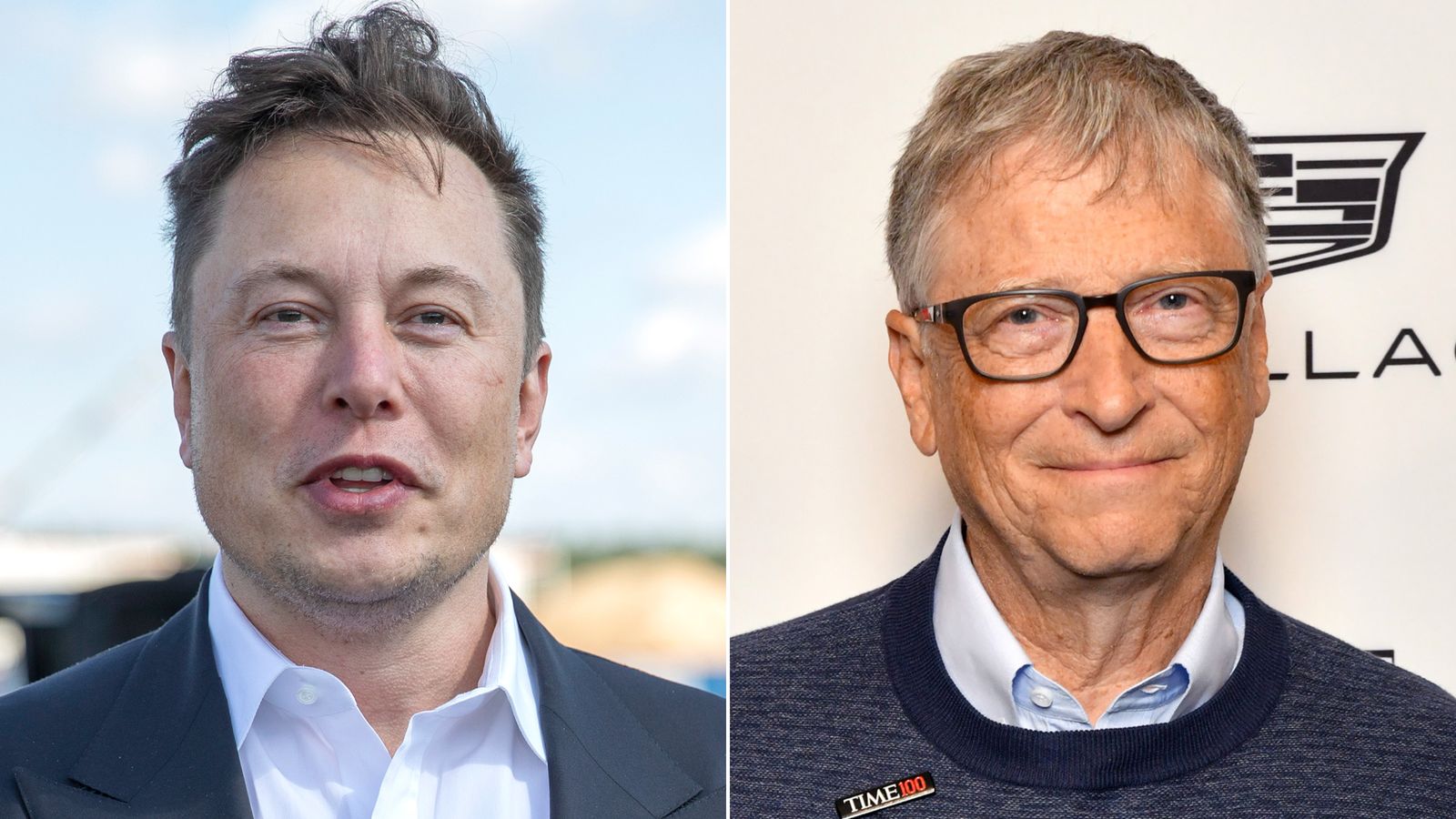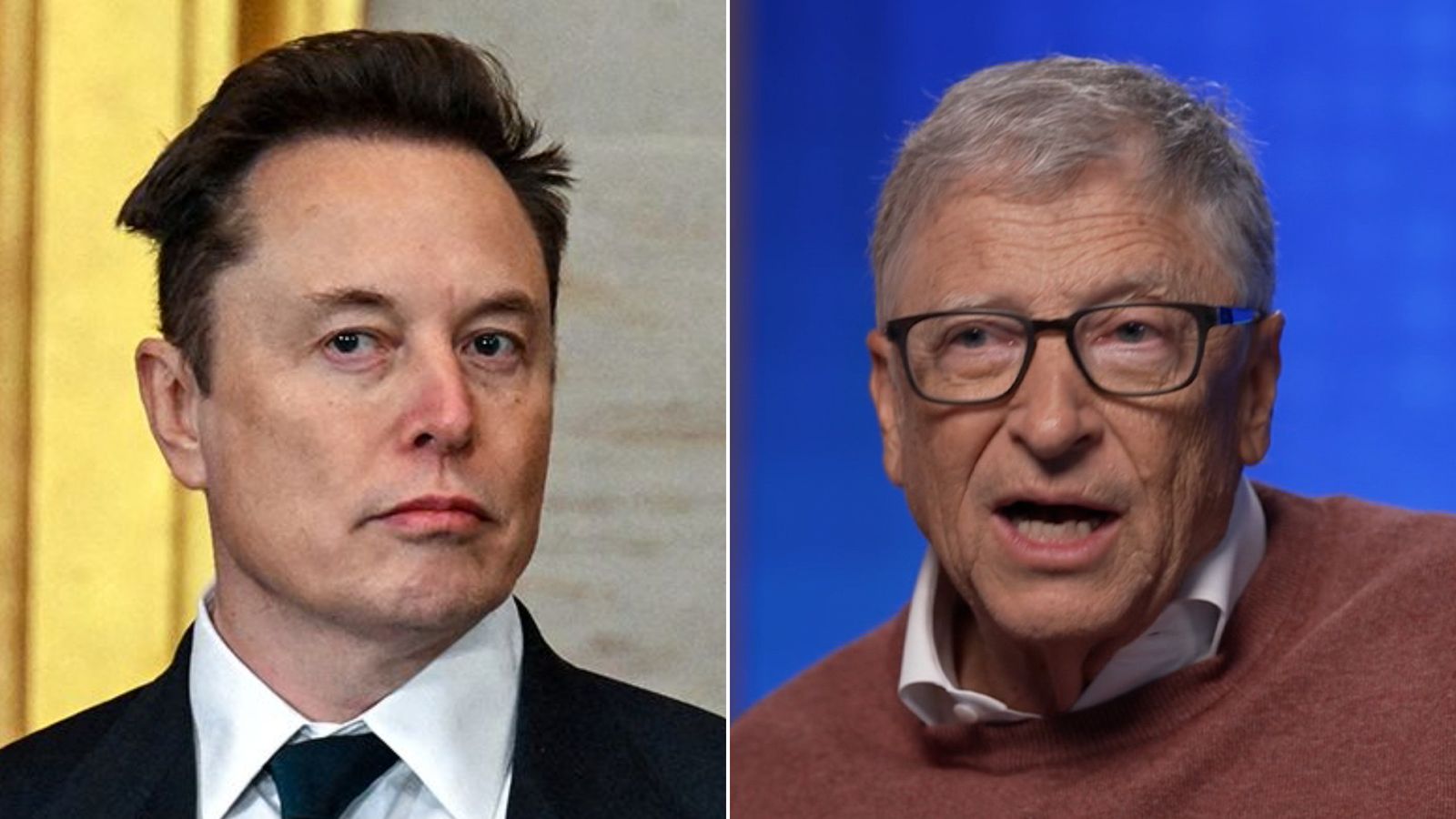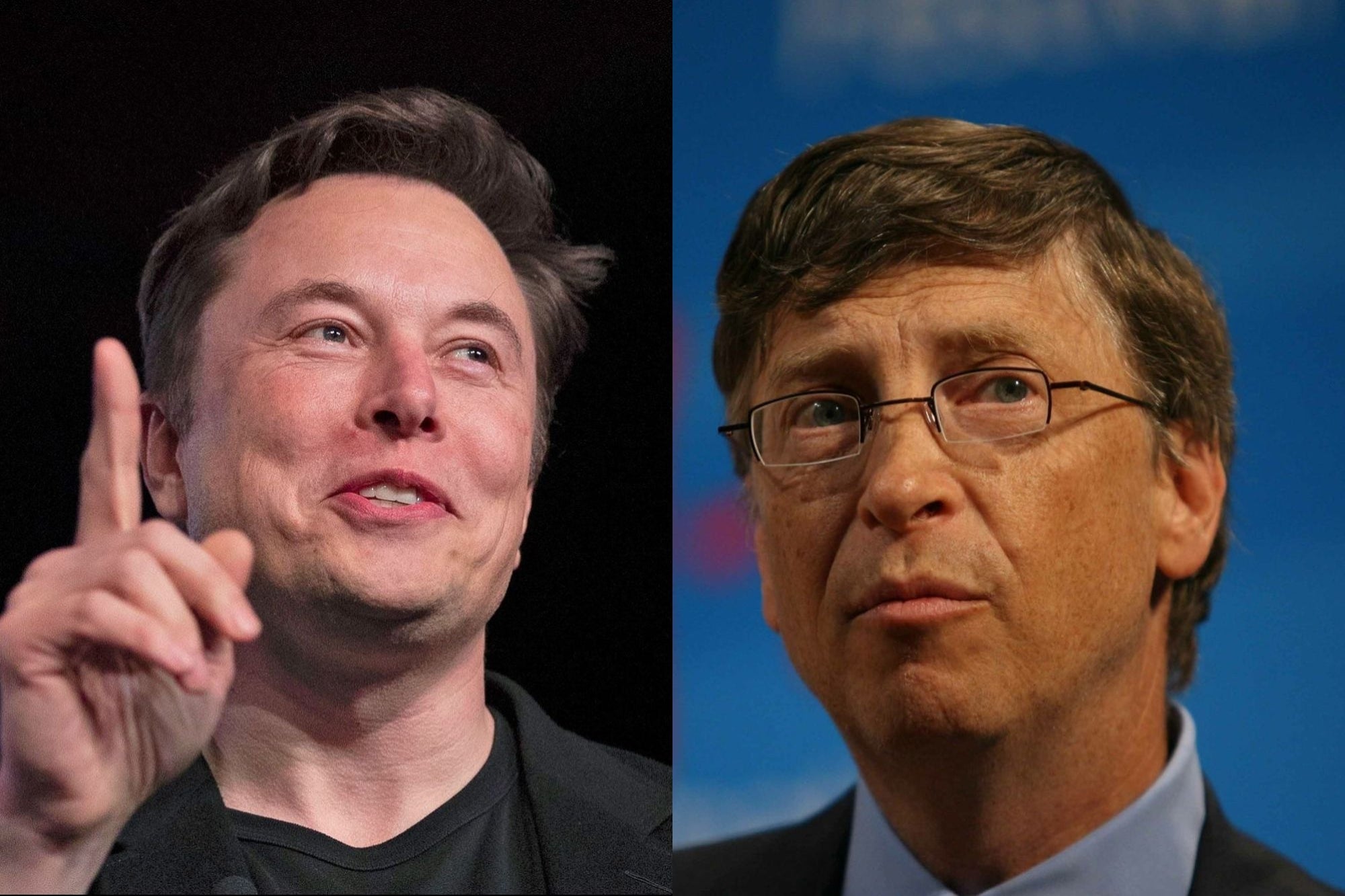
The rivalry between Elon Musk and Bill Gates has once again reached a boiling point, with Gates accusing Musk of effectively "killing" children by slashing funding for USAID programs. The public feud between the two tech billionaires has escalated since 2022, but Gates’ recent comments have taken the conflict to a new level.
In an interview with the Financial Times, Gates criticized Musk’s involvement in cutting billions of dollars in funding from USAID, which he claims has severely impacted the world’s poorest children by depriving them of critical resources like food, medicine, and HIV prevention programs.
This clash between two of the world’s wealthiest and most influential figures centers around their differing views on philanthropy and global responsibility. Gates, who has spent decades dedicating his wealth to charitable causes through the Bill & Melinda Gates Foundation, has become increasingly vocal about the importance of funding public health initiatives, particularly those that target child health, maternal care, infectious diseases, and hunger.
Musk, on the other hand, has frequently been criticized for his approach to charity, often questioning the effectiveness of traditional philanthropic efforts and emphasizing his belief in disruptive innovation as a solution to global problems.

The tension between Gates and Musk is not new, but Gates’ recent statements have brought their disagreement into sharper focus. The catalyst for the latest escalation is Musk’s decision to cut funding to USAID, a move that Gates claims has had devastating consequences for children in regions like Gaza and Mozambique, where USAID’s programs were helping prevent the transmission of HIV from mothers to their children.
Musk’s rationale for cutting these funds, according to Gates, was misguided, as he incorrectly suggested that the money was being used for condom distribution. Gates, who has dedicated significant portions of his fortune to global health initiatives, is particularly vocal about Musk’s actions in light of the long-standing history of successful USAID interventions in these regions.
Gates did not hold back in his criticism of Musk, stating that the image of the richest man in the world causing harm to the poorest children in the world is "not a pretty picture." He expressed his frustration with Musk’s decision, highlighting the profound consequences it has had for the most vulnerable populations.
"I really want him to meet the children who are now infected with HIV because he cut that money," Gates remarked, underscoring the personal impact of Musk’s actions on real lives. Musk’s focus on cutting costs and reducing government spending, including his role in the Trump administration’s decisions to slash aid, has drawn sharp opposition from those who believe such measures disproportionately hurt the poor.

The disagreement between Gates and Musk is more than just a matter of differing philanthropic approaches; it also reflects their broader ideological differences. Gates has long been a proponent of government intervention and funding for global health initiatives, emphasizing the importance of sustained aid and the role of institutions like USAID in addressing systemic issues like poverty and disease.
Musk, on the other hand, has consistently advocated for a smaller government and less intervention, often questioning the effectiveness of traditional aid programs. This fundamental divide in their worldview has only deepened as their public profiles have risen.
The dispute between Gates and Musk is also rooted in their personal philosophies about wealth and philanthropy. Gates has dedicated a significant portion of his wealth to charitable causes, pledging to give away nearly all of his fortune through the Gates Foundation over the next two decades. Musk, in contrast, has been less vocal about his own philanthropic commitments, preferring to focus on the direct impact of his businesses and innovations.
Musk has previously stated that "most charitable activities are nonsense," a sentiment that aligns with his broader belief in the power of technology and entrepreneurship to solve global problems. This ideological rift between the two billionaires reflects a larger debate in society about the role of wealth and philanthropy in addressing global issues.

Musk’s recent behavior, particularly his involvement in the administration of former President Donald Trump, has added further fuel to the fire. His role in pushing for government cuts and his focus on reducing the federal deficit have led to sharp criticism from those who believe such policies undermine essential social services.
Musk’s efforts to cut $2 trillion from the U.S. government’s debt may have been bold, but the impact of these cuts on vulnerable populations has sparked widespread concern. The result has been an ongoing public debate about the merits of Musk’s approach, with many questioning whether the long-term consequences of his actions are worth the potential financial savings.
The fallout from the USAID cuts is just one chapter in a broader narrative about Musk’s relationship with the global community and his role in shaping public policy. While Musk’s ventures, particularly in space exploration and electric vehicles, have garnered significant admiration, his stance on government funding and his willingness to cut aid programs have drawn sharp opposition from those who believe that his actions disproportionately affect the most vulnerable.
Gates’ comments reflect the frustration of those who believe that Musk’s focus on financial efficiency comes at the expense of people’s lives, particularly those in the developing world who rely on aid for survival. For Gates, the conflict with Musk represents a clash between two competing visions of global progress.

Gates has spent decades working to improve global health and reduce poverty through targeted investments in health care, education, and infrastructure. Musk, in contrast, views innovation and technology as the primary drivers of change, and he has placed his faith in the disruptive potential of his businesses to solve global problems.
This ideological divide between Gates and Musk underscores the broader tension between traditional philanthropy and the modern approach to business and technology-driven change. Despite the sharp differences between the two billionaires, both share a common goal: to improve the world.
However, their approaches to achieving that goal could not be more different. Gates believes that systemic change is necessary, supported by sustainable and consistent funding, while Musk believes that innovation and technological advancement can drive progress. The debate between these two powerful figures serves as a microcosm of the broader conversation about the role of philanthropy, government aid, and business in addressing global challenges.
In conclusion, the ongoing rivalry between Bill Gates and Elon Musk highlights the deep ideological divisions that exist within the tech and philanthropic sectors. Gates’ accusations that Musk’s cuts to USAID funding have endangered the lives of children in the world’s poorest countries underscores the tension between their competing visions of how to achieve global progress.

While Musk’s focus on innovation and reducing government intervention has made him a highly influential figure, his approach to global issues continues to spark controversy. Gates, on the other hand, remains committed to the idea that philanthropy and government funding are essential to addressing the most pressing problems facing humanity. The conflict between these two billionaires is far from over, and it reflects a much larger debate about the future of global development and the role of wealth in shaping the world.
-1742205390-q80.webp)
-1746084925-q80.webp)
-1742199960-q80.webp)
-1742215389-q80.webp)